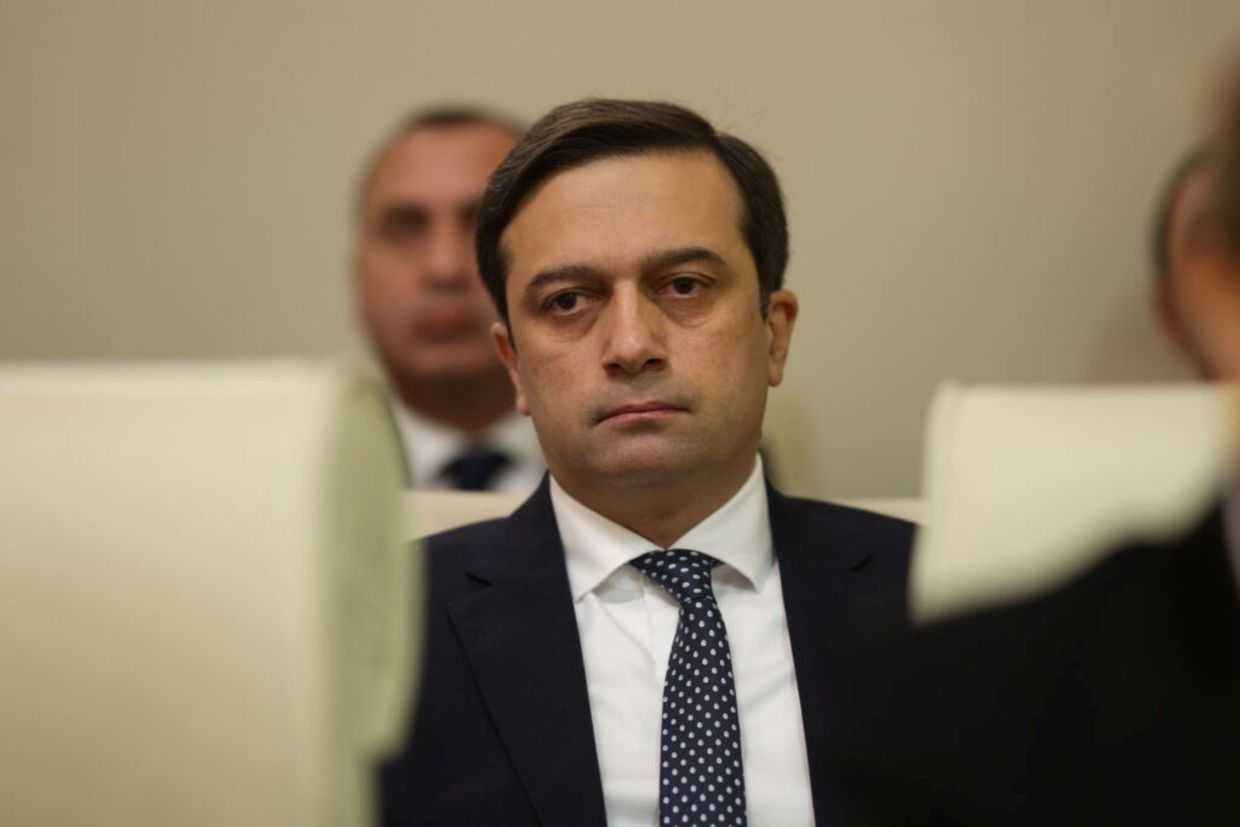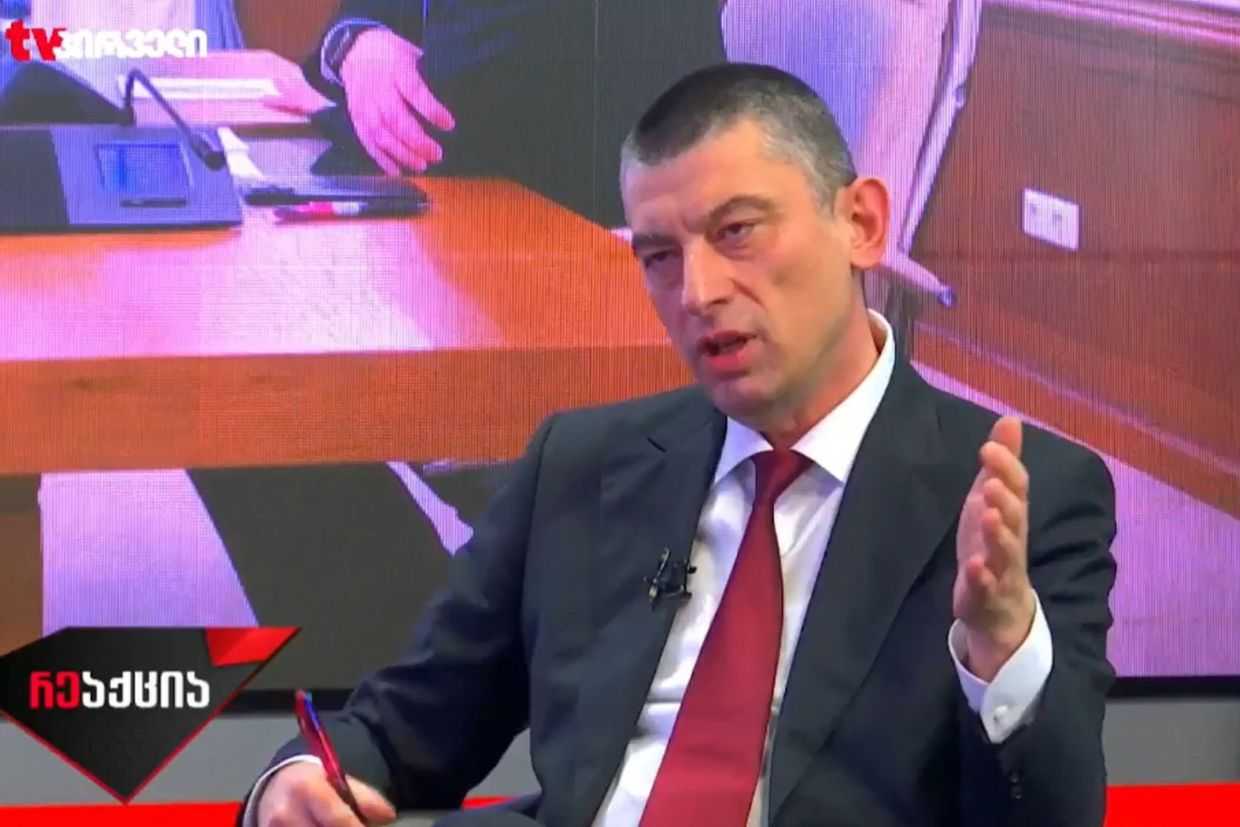Police clash with protesters in Georgia for second night over EU U-turn
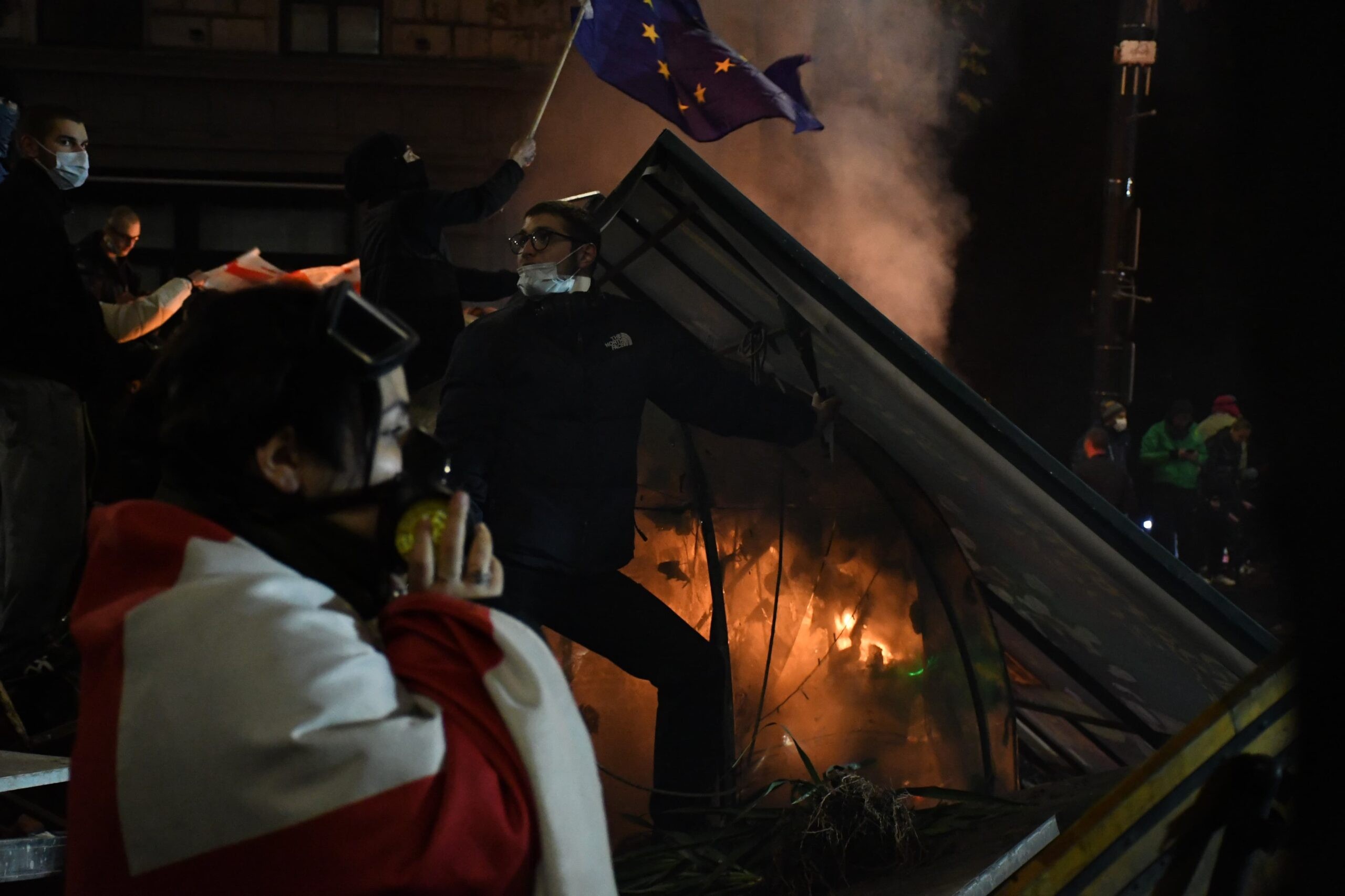
Georgian police have clashed with protesters for a second evening in Tbilisi, following the government’s shock announcement that they were halting the country’s EU accession process ‘until 2028’.
The decision came in the wake of 26 October’s parliamentary elections, during which widespread voter fraud by the ruling Georgian Dream party was documented. Opposition groups, the President, and as well as the EU Parliament have all rejected the vote as illegitimate.
Thousands gathered outside the Georgian Parliament for a demonstration against the decision on Thursday, with riot police deploying water cannons and tear gas to push them back to the city’s central Rustaveli Avenue.
Protesters fought running battles with police, throwing fireworks and rocks and constructing a makeshift barricade on the city’s central thoroughfare. Police eventually moved in to disperse the protesters, charging them from all sides and making numerous arrests. Footage showed protesters being beaten, including one man who was kicked several times in the head as he lay on the ground.
Police several times charged into the demonstration prior to this, beating protesters and arresting others. At several points during the evening, the police appeared to lose their composure, using loud speakers to swear at protesters, telling them ‘fuck your mothers’ and other obscenities.
Protests also broke out in other towns and cities throughout the country, including Kutaisi, Telavi, and Chorotskhu. In the country’s second largest city, Batumi, police arrested several people.
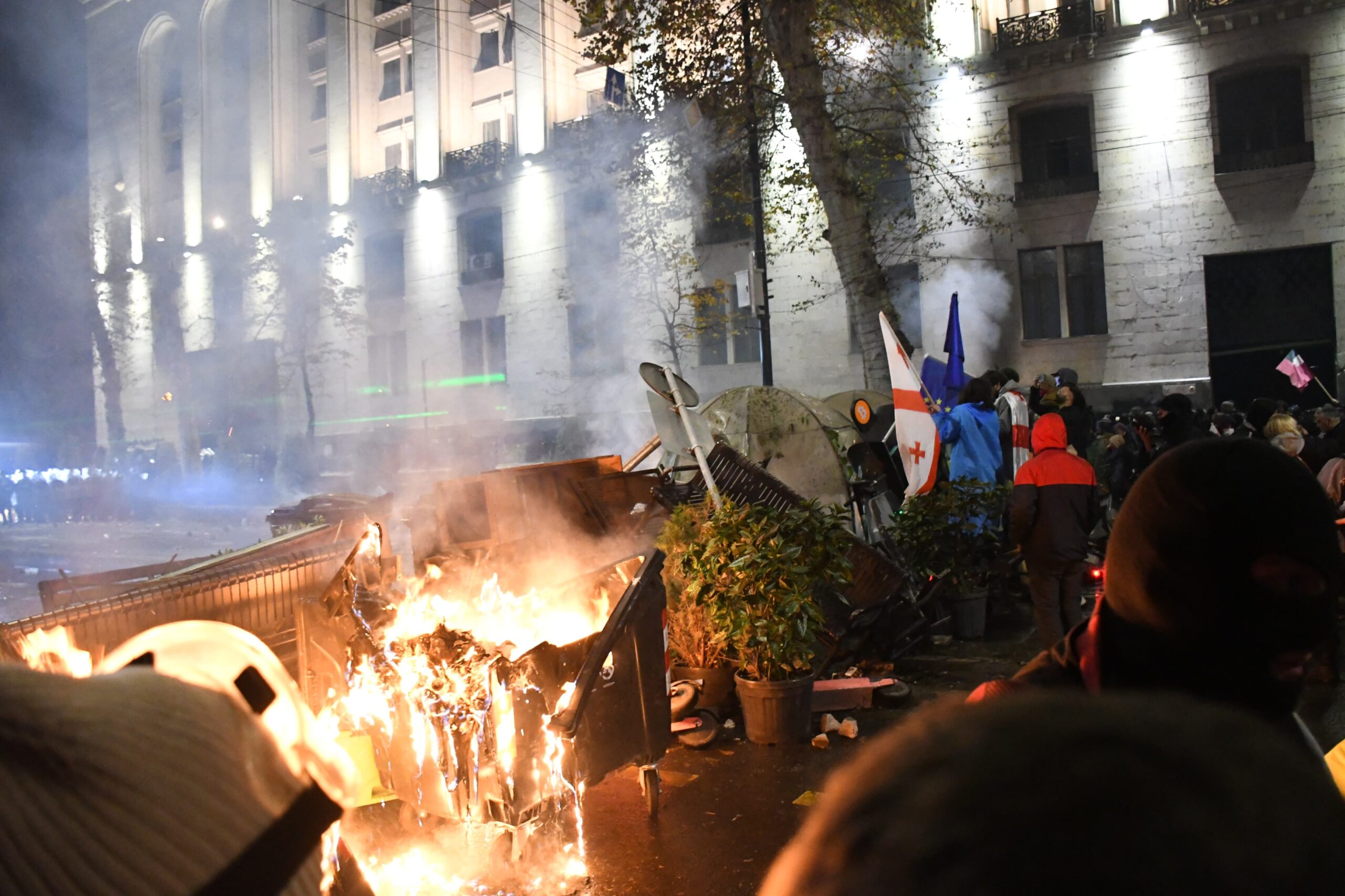
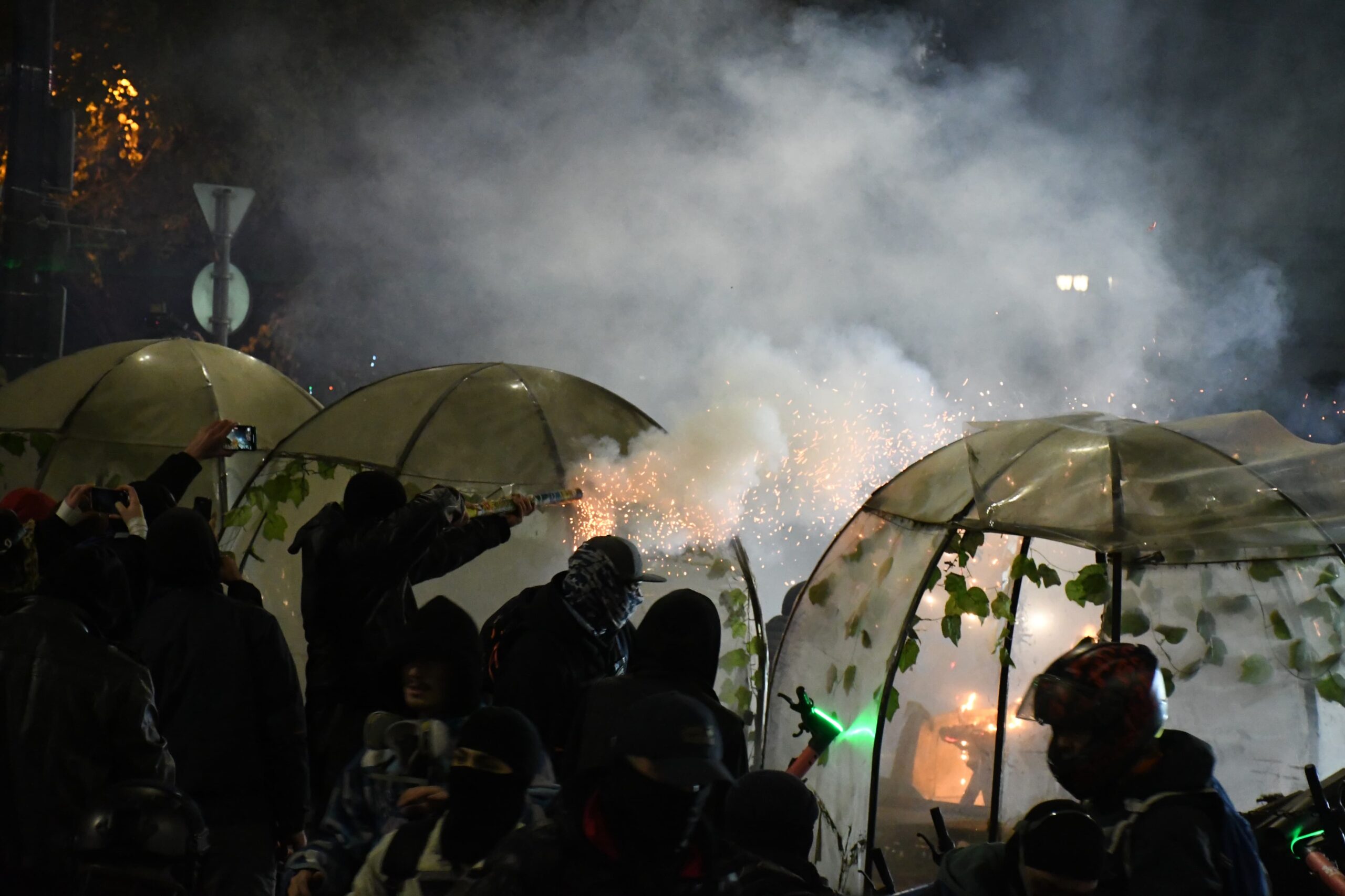
President Salome Zourabichvil praised the protests as an ‘unprecedented movement’, while admonishing the riot police for using disproportionate force.
‘It’s evident in every way that no one is willing to accept a Russified Georgia, a Georgia stripped of its constitution, or a Georgia in the hands of an illegitimate government and parliament.’
She also praised a series of statements signed by hundreds of public sector employees from several institutions protesting the government’s U-turn on EU integration.
‘This is a huge movement that has begun in the public sector and that will engulf all of Georgia’, she said.
Earlier on Friday, Georgia’s Ambassador to Bulgaria, Otar Berdzenishvili, announced he had resigned over the issue.
Defending the previous night’s violence by police, Prime Minister Irakli Kobakhidze blamed the protesters.
‘If there had not been large-scale violence by the protesters, there would have been no need to disperse the gathering and, consequently, none of these incidents would have occurred’, Kobakhidze said.
Messages of concern and condemnation continued to pour in from European capitals on Friday, over the government’s foreign policy shift, the violence against protesters, and democratic backsliding in the country.
‘Disappointed by the decision of the Georgian government to halt their EU process — against the people’s will’, Finland’s Foreign Minister, Elina Valtonen, said. ‘We still see the Georgian people’s future in a free and democratic society. Strongly condemn any violent action against peaceful protesters. Georgia is Europe.’
Commenting on the attacks by police on the press, Denmark’s Foreign Minister, Lars Løkke Rasmussen, said Denmark was ‘appalled by reports of the excessive use of violence against pro-European protesters and journalists’.
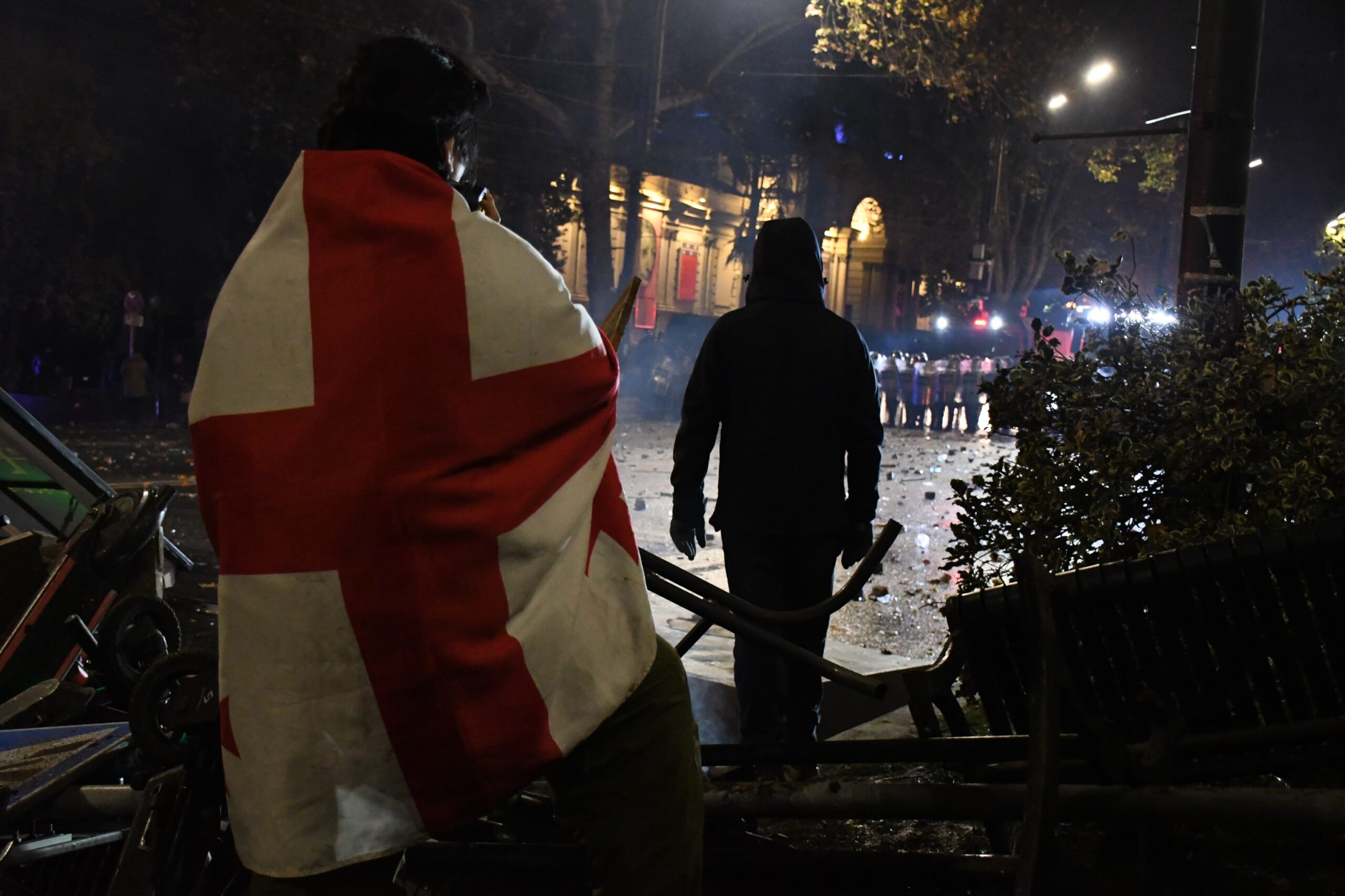
On Thursday, the Georgian online media outlet Publika reported that a riot police officer struck their reporter, Ana Mskhaladze, on the head after knocking her phone from her hands as she documented police violence. Yesterday, Publika journalist Aleksandre Keshelashvili was arrested and beaten by masked police.
They were among a number of journalists injured over the last two days, including OC Media co-founder Mariam Nikuradze.


